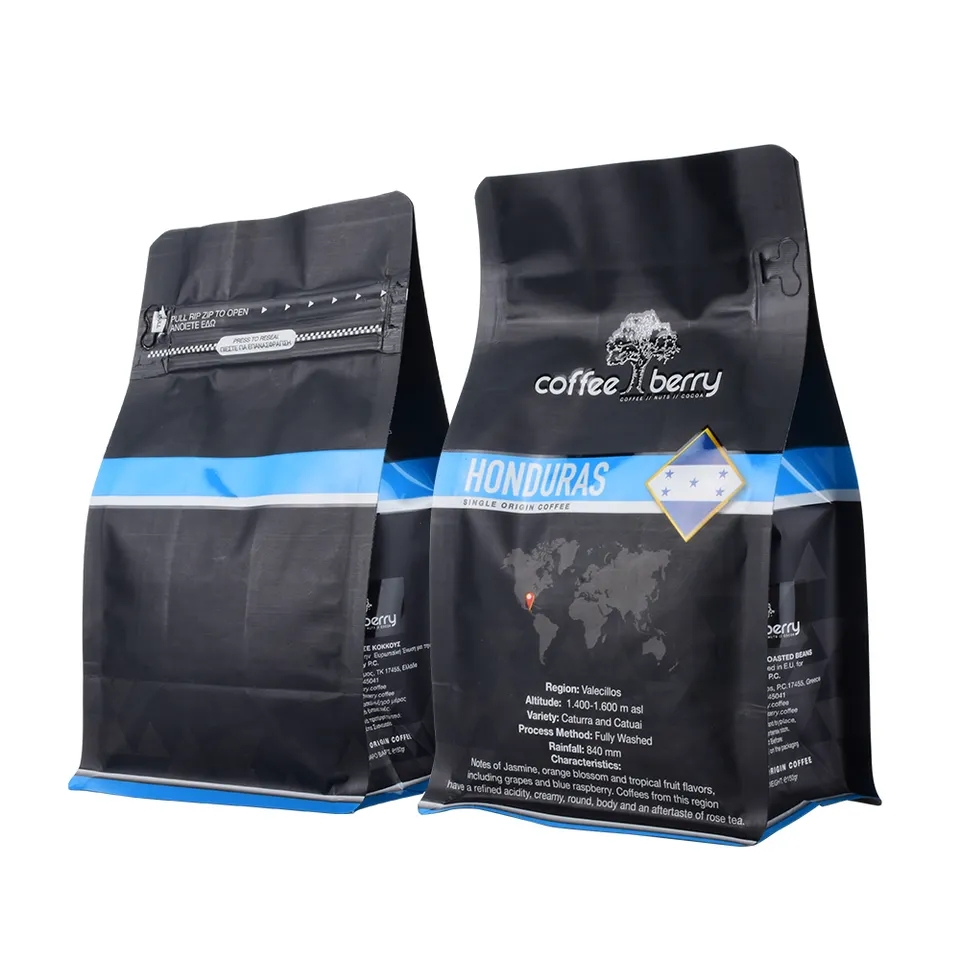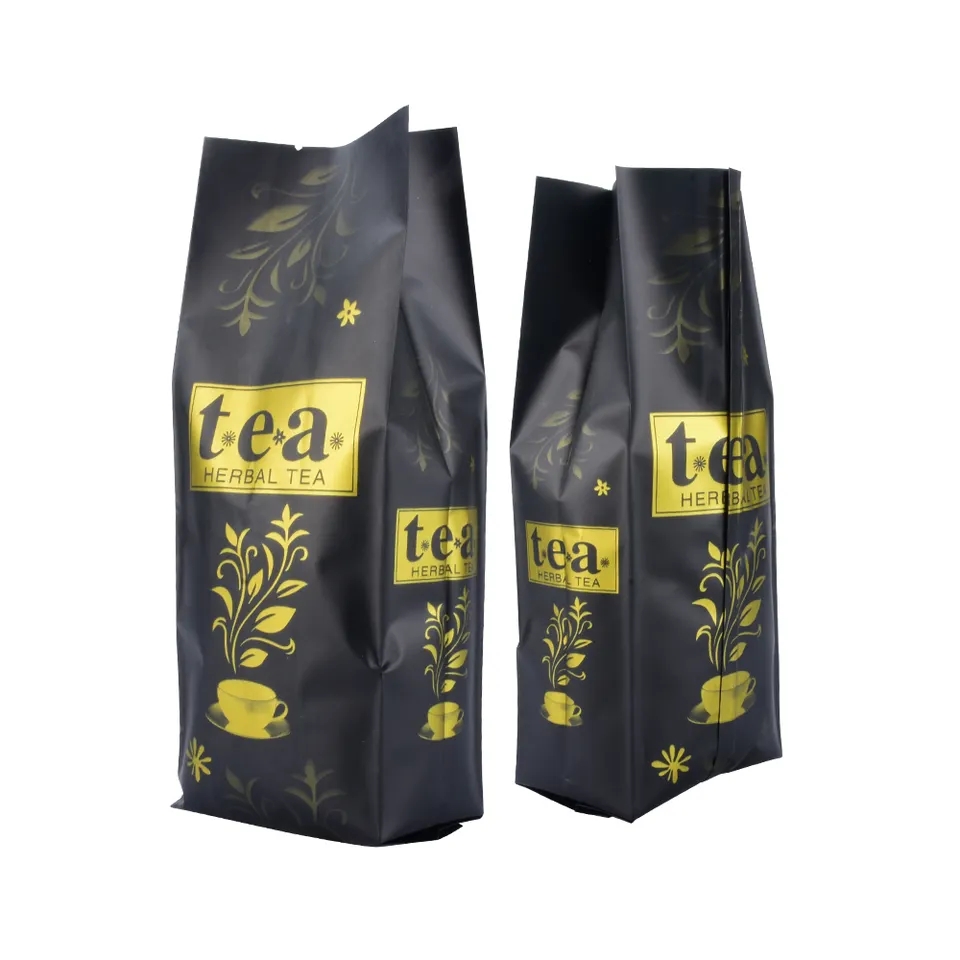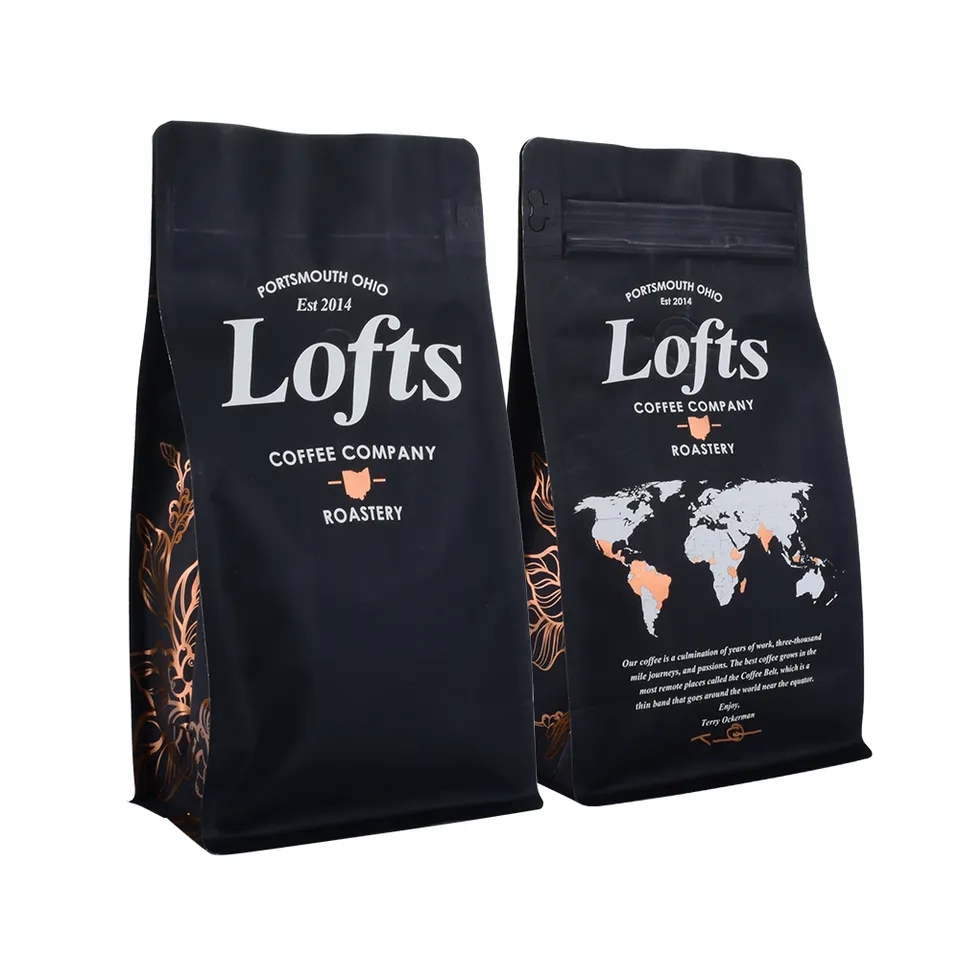Introduction:
The choice of coffee packaging is a critical decision for coffee producers and consumers alike. Plastic coffee bags have long been the standard due to their convenience and preservation capabilities. However, in the wake of mounting environmental concerns, sustainable alternatives have emerged, challenging the dominance of traditional plastics. This article aims to compare plastic coffee bags with sustainable alternatives, exploring the advantages and disadvantages of each to empower stakeholders in making informed and eco-conscious packaging choices.
1. Plastic Coffee Bags: Convenience and Preservation:
a) Advantages:
Airtight Seal: Plastic coffee bags provide an excellent barrier against oxygen, moisture, and light, preserving the freshness and flavor of coffee beans.
Widely Available: Plastic coffee bags are easily accessible and cost-effective, making them a popular choice for coffee producers and retailers.
User-Friendly: Resealable zippers and easy-open features offer convenience for consumers, ensuring easy access to coffee beans and maintaining freshness between each use.
b) Disadvantages:
Environmental Impact: Traditional plastic coffee bags contribute to plastic pollution, taking hundreds of years to decompose in landfills.
Single-Use Packaging: Disposable plastic bags perpetuate the cycle of waste generation, posing a significant environmental challenge.
2. Sustainable Alternatives: Eco-Friendly Innovations:
a) Biodegradable Coffee Bags:
Advantages: Biodegradable coffee bags made from organic materials like cornstarch or sugarcane break down naturally, reducing plastic waste and environmental impact.
Disadvantages: Some biodegradable materials may have limited barrier properties compared to traditional plastics, potentially affecting the shelf life of coffee beans.
b) Compostable Coffee Bags:
Advantages: Compostable coffee bags offer a circular solution, transforming into nutrient-rich compost when discarded with organic waste.
Disadvantages: Compostable materials may require specific conditions to decompose effectively, necessitating access to composting facilities.
c) Recycled Plastic Coffee Bags:
Advantages: Using recycled plastics for coffee bags reduces the demand for virgin plastic and promotes a circular economy.
Disadvantages: The quality and properties of recycled plastics may vary, potentially impacting the preservation capabilities of the coffee bags.
d) Innovative Bioplastics:
Advantages: Innovative bioplastics like PHA and PVOH offer biodegradability or water solubility, providing eco-friendly alternatives with enhanced preservation features.
Disadvantages: The cost and scalability of producing innovative bioplastics may currently be higher compared to traditional plastics.
3. Balancing Sustainability and Practicality:
a) Consumer Perception: Consumer awareness and demand for sustainable packaging are driving coffee producers to consider eco-friendly alternatives.
b) Packaging Functionality: Balancing sustainability with packaging functionality is crucial to maintain the quality and convenience expected by consumers.
c) Collaborative Efforts: The coffee industry, packaging manufacturers, and environmental organizations must collaborate to develop and promote sustainable solutions.
Conclusion:
The choice between plastic coffee bags and sustainable alternatives involves weighing convenience, preservation capabilities, and environmental impact. While plastic coffee bags offer convenience and effective preservation, sustainable alternatives present innovative and eco-friendly options to address plastic waste. Biodegradable, compostable, recycled plastics, and innovative bioplastics each offer unique advantages and challenges, requiring careful consideration by coffee producers and consumers. As the coffee industry embraces sustainable practices and consumer demand for eco-friendly options grows, the packaging landscape will continue to evolve, leading to a more responsible and environmentally conscious coffee culture. Ultimately, making informed packaging choices will contribute to a greener tomorrow, where the love for coffee is harmoniously united with a profound commitment to environmental stewardship.


